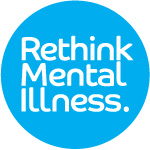THIS PAGE IS INTENDED FOR UK PATIENTS WHO HAVE BEEN PRESCRIBED BIQUELLE XL® (QUETIAPINE)
Biquelle XL® (quetiapine)
Prolonged-release tablets
About Biquelle XL®
Summary of Product Characteristics (SmPC) and Patient Information Leaflet (PIL)
The following links will take you to the electronic Medicines Compendium (eMC) website.
By using the links below, you will leave the Pathway Portfolio website and be re-directed to an external site. Aspire Pharma is not responsible for the content on external websites.

Biquelle XL® 5Omg
Biquelle XL® 150mg
Biquelle XL® 200mg
Biquelle XL® 300mg
Biquelle XL® 400mg
Biquelle XL® 600mg
Mental Health Conditions
Schizophrenia
Schizophrenia is a long-term mental health condition. Doctors often describe schizophrenia as a type of psychosis. This means the person may not always be able to distinguish their own thoughts and ideas from reality.1 The condition may develop slowly. The first signs can be hard to identify as they often develop during the teenage years.2
The symptoms of schizophrenia are usually classified into:2
Positive symptoms – any change in behaviour or thoughts, such as hallucinations or delusions
Negative symptoms – where people appear to withdraw from the world around them, take no interest in everyday social interactions, and often appear emotionless and flat
The exact causes of schizophrenia are unknown. Research suggests a combination of physical, genetic, psychological and environmental factors can make a person more likely to develop the condition. Some people may be prone to schizophrenia, and a stressful or emotional life event might trigger a psychotic episode. However, it’s not known why some people develop symptoms while others don’t.3
Bipolar Disorder
Bipolar disorder is characterised by extreme mood swings. These can range from extreme highs (mania) to extreme lows (depression). Episodes of mania and depression often last for several weeks or months.
A person with the condition may be unaware they’re in the manic phase. After the episode is over, they may be shocked at their behaviour. However, at the time, they may believe other people are being negative or unhelpful.
If you have bipolar disorder, you may have episodes of depression more regularly than episodes of mania, or vice versa.
Between episodes of depression and mania, you may sometimes have periods where you have a “normal” mood.4
The patterns are not always the same and some people may experience:4
- rapid cycling – where a person with bipolar disorder repeatedly swings from a high to a low phase quickly
- mixed state – where a person with bipolar disorder experiences symptoms of depression and mania together; for example, overactivity with a depressed mood
The exact cause of bipolar disorder is unknown. Experts believe there are a number of factors that work together to make a person more likely to develop the condition. These are thought to be a complex mix of physical, environmental and social factors.
There is also some evidence that bipolar disorder may be associated with chemical imbalances in the brain. The chemicals responsible for controlling the brain’s functions are called neurotransmitters and include noradrenaline, serotonin and dopamine.5
Major Depressive Disorder (MDD)
The symptoms of depression can be complex and vary widely between people. If you’re depressed, you may feel sad, hopeless and lose interest in things you used to enjoy.
The symptoms persist for weeks or months and are bad enough to interfere with your work, social life and family life. There are many symptoms of depression, which often fall into three categories: psychological, physical and social.6
There’s no single cause of depression. It can occur for a variety of reasons and it has many different triggers.
For some people, an upsetting or stressful life event, such as bereavement, divorce, illness, redundancy and job or money worries, can be the cause.
Different causes can often combine to trigger depression. For example, you may feel low after being ill and then experience a traumatic event, such as a bereavement, which brings on depression.7
Resources
By using the link below you will leave the Pathway Portfolio website and be re-directed to an external site; Aspire Pharma is not responsible for the content on external websites.
References:
- NHS. Schizophrenia. https://www.nhs.uk/mental-health/conditions/schizophrenia/overview/ (accessed June 2024)
- NHS. Schizophrenia – Symptoms. https://www.nhs.uk/mental-health/conditions/schizophrenia/symptoms/ (accessed June 2024)
- NHS. Schizophrenia – Causes. https://www.nhs.uk/mental-health/conditions/schizophrenia/causes/ (accessed June 2024)
- NHS. Bipolar – Symptoms. https://www.nhs.uk/mental-health/conditions/bipolar-disorder/symptoms/ (accessed June 2024)
- NHS. Bipolar – Causes. https://www.nhs.uk/mental-health/conditions/bipolar-disorder/causes/ (accessed June 2024)
- NHS.. Clinical Depression – Symptoms. https://www.nhs.uk/mental-health/conditions/clinical-depression/symptoms/ (accessed June 2024)
- NHS. Clinical Depression – Causes. https://www.nhs.uk/mental-health/conditions/clinical-depression/causes/ (accessed June 2024)
XLW1010311V1_JUN2024



